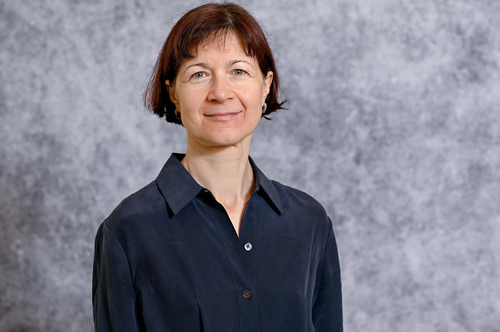Rada Chirkova
Professor, Computer Science, NC State
Director, Center for Accelerated Real-Time Analytics (CARTA)
Bio
Rada Chirkova is a Professor in the Department of Computer Science at North Carolina State University (NC State). She is also Director of the NC State site of the Center for Accelerated Real-Time Analytics (CARTA), a multiuniversity center under the NSF-supported Industry-University Cooperative Research Centers Program. She received a B.Sc. in Applied Mathematics at Moscow State University in Moscow, Russia in 1991, a M.Sc. in Applied Mathematics at Moscow State University in 1995, and a M.Sc and a Ph.D. in Computer Science at Stanford University, in 2000 and 2002, respectively. She joined NC State in 2002.
Chirkova has made significant technical contributions to foundational research in enabling the use of data and knowledge to accelerate data-driven decisions. These contributions have broad applicability to systems that focus on data processing and/or on enhancing the quality of data and knowledge. As a nationally and internationally recognized expert, she has made significant and impactful contributions to core research areas relevant to data and knowledge enablement and readiness, including addressing hard fundamental problems in query containment and equivalence, query processing, view-based reformulation of data and queries, information security and privacy, applications of policies to agent behaviors, and data wrangling and analytics in interdisciplinary data science. Her work influences the community through its applicability to solving challenging real-world problems of data transformation, data analysis, query processing, security, and privacy, in medical and other domains. Her work leads to development and implementation of practical and, at the same time, theoretically justified algorithms in both data-processing and data-quality-enhancing systems, applicable to a multitude of domains including medical research, agriculture, national security, and others.
Since 2017 Chirkova has been building and contributing to interdisciplinary teams that address research challenges in data science, in the areas of antimicrobial resistance and pharmaceutical research. It is well known that such interdisciplinary teams are hard to build, due to translational and “interdisciplinary trust” issues that have to be slowly overcome over time. Setting up and maintaining such interdisciplinary research teams in data science, both within NC State and jointly with other entities (e.g., NSA and UNC-Chapel Hill), has been a large portion of Chirkova’s effort in the past few years. On the at least three different teams that she has been involved in, her goal as the computational data scientist has been to introduce the culture of interdisciplinary data science that involves a strong and theoretically justifiable computational data-science component. She is one of the few researchers in her area who, with their appropriate training and success record of past achievement in foundational research, undertake the work of eliciting from interdisciplinary collaborators descriptions of the challenges that they encounter, formalize the challenges in a rigorous way, deliver solutions that are of research – rather than just applied – value, and translate the solutions back to the interdisciplinary collaborators.
Chirkova has published two books and around 90 conference and journal papers, workshop papers, book chapters, and invited contributions. She has been serving as Editor in Chief of the SIGMOD Record Journal and as a membed of the ACM SIGMOD Executive Committee. In 2017 she served as general co-chair of the ACM SIGMOD International Conference on Management of Data. Chirkova has also served on Program Committees of a number of top conferences in data management, most recently as Associate Editor on the research track of the ACM SIGMOD 2021 conference. She has served as session chair in conferences, has organized workshops, and has co-chaired a panel at one of the Very Large Databases conferences. She has received the National Science Foundation CAREER award. In STEPS she will serve as the data scientist on the team.

